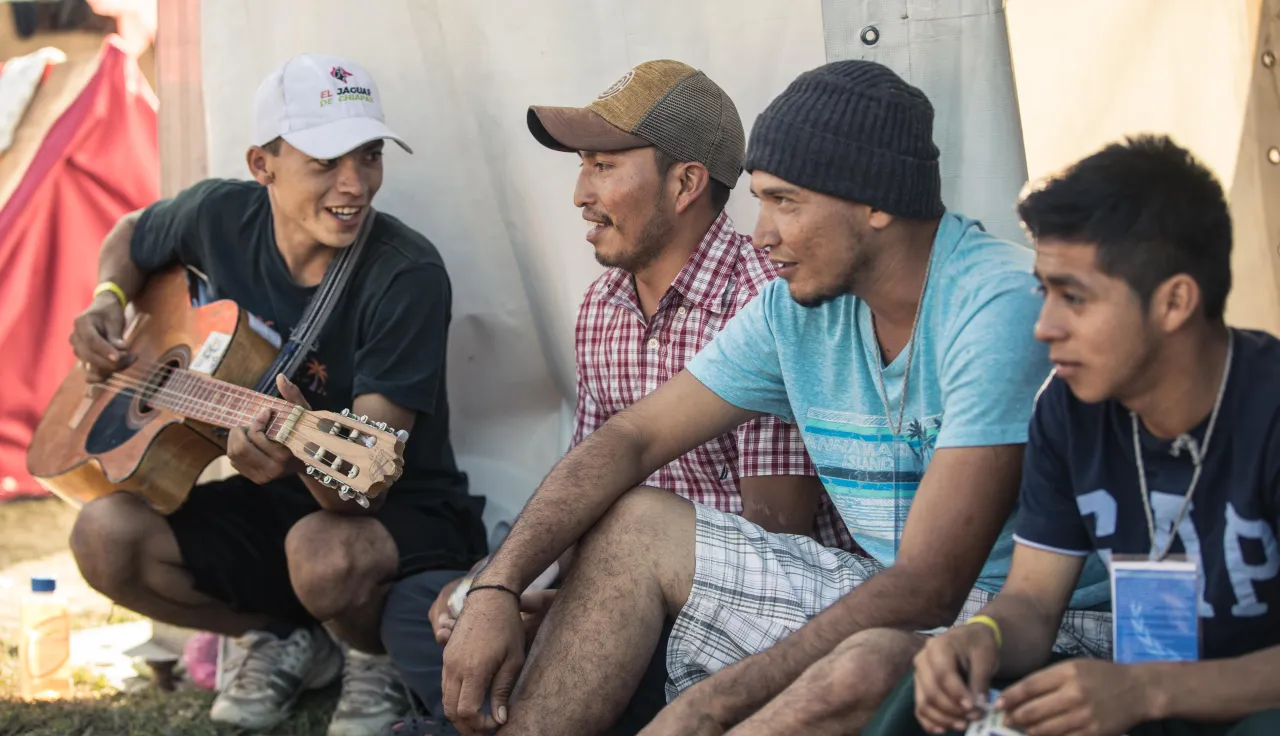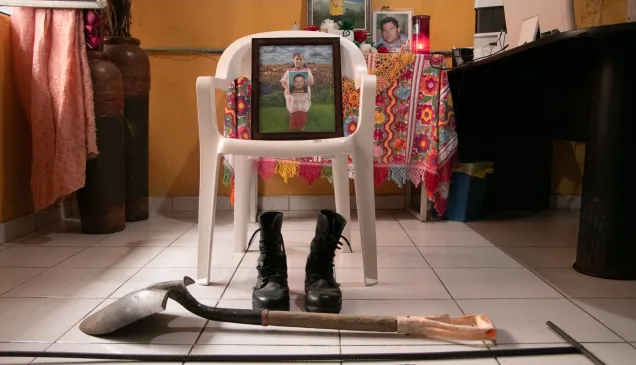Mexico: Migration and Displacement

The ICRC has seen first-hand the major challenges that Mexico is facing in assisting and protecting the thousands of people forced to flee their homes, leaving everything behind, in search of a better life.
Mexico sees a constant flow of Central American migrants who cross the country in their thousands on their way northwards, adding to the numbers of Mexican citizens who are attempting to migrate or are internally displaced. The humanitarian consequences of the violence these people face while on the move are of great concern to the ICRC. Many of them lose contact with their families, are victims in violent incidents, suffer accidents, go missing or die.
Changes arising from new public policies, such as the implementation of the Migrant Protection Protocols on the northern border, the involvement of new actors, such as the National Guard, to deal with the situation, the significant increase in the flow of families and unaccompanied children and adolescents and the growing number of detained migrants and asylum applications are all issues that the ICRC is monitoring closely and that require a humanitarian response.
While the ICRC acknowledges that the primary responsibility for meeting these assistance and protection needs lies with the State, it is also well aware of the challenges involved in ensuring that migrants can exercise their rights in a situation in which the number of people being returned continues to rise (an estimated 50,000 at the end of 2019) and so many people are forced to wait in Mexico for their asylum applications to be processed. We therefore worked with the Mexican Red Cross to support migrants, carrying out prevention, humanitarian assistance and protection activities. We collaborated with central and local government institutions, shelters and civil society to promote and protect the dignity and rights of migrants and ensure their safety. We also supported shelters to ensure that there is decent accommodation for migrants and, with the National Society, we set up points across Mexico where migrants can make free phone calls to their families.

Migrants who pass through the Decenal Guadalupano shelter in Tierra Blanca, Veracruz, often walk 300 km after their last stop. We help improve your sanitary facilities so that they have dignified and hygienic spaces to recover. ICRC/A. Falcón
With a view to addressing the humanitarian consequences of the obstacles migrants face in accessing health services, the ICRC's assistance activities and its Physical Rehabilitation Programme for migrants with disabilities aim to improve access to health and rehabilitation services by providing a comprehensive response.
In collaboration with the Mexican Red Cross, we disseminate face-to-face and WhatsApp self-care messages to inform migrants about their basic rights, ways to reduce risks while on the move and the location of shelters along migration routes. We also collaborate with the United Nations Refugee Agency (UNHCR) to spread these messages through its "El Jaguar" Facebook page.
The ICRC visits migrants in immigration detention centres and temporary holding facilities to ensure that the dignity of migrants is respected in terms of treatment, living conditions and health care. We inform migrants of their right to apply for asylum and ensure that they are able to exercise it. We also promote access to alternatives to immigration detention for particularly vulnerable groups.
Silvia left Honduras in the hope of reaching the United States, traveling from Guatemala to Chiapas with a migrant caravan. However, her dream was shattered when she suffered an accident on the migration route in which she lost a leg. Silvia was taken to Acayucan where she received medical attention. She was then transferred to Celaya, where she was fitted with a prosthesis and received rehabilitation thanks to the program implemented by the ICRC together with the rehabilitation center of the Guanajuato Institute for People with Disabilities and the Mexican Red Cross.



